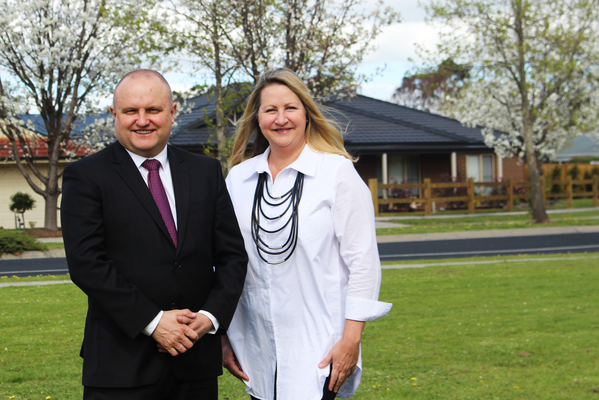
By Rowan Forster
Donalea Patman sold her beloved family home in the Dandenong Ranges to fund a crusade against the importation of ivory in Australia – supported by her local MP, Jason Wood.
The Latrobe constituent is now the founding director of For the Love of Wildlife, a powerhouse conservation group jostling to save iconic and endangered animals from extinction.
She and Mr Wood have been working hand-in-hand to ban the importation of elephant ivory and rhinoceros horn into the country.
For Mrs Patman, it has been a tumultuous journey sparked during a visit to Africa.
“When I saw these animals in the wild for the first time, I was so taken by their physical and majestic presence,” she said.
“I came back to Australia and nobody was interested in talking to me about the poaching and the plight of these animals.
“When I raised it with Jason Wood, he mentioned it in parliament and it started getting momentum so I launched For the Love of Wildlife.
“I knew I only had one window, so I sold my house and tried my hardest.”
The animal activist has since been awarded an Order of Australia Medal (OAM) for her relentless work in the field.
When Mrs Patman discovered ivory for sale on Chapel Street, she knew something had to be done.
According to a Federal Government inquiry into the trade of elephant ivory and rhinoceros horn, an elephant is killed every 15 minutes and a rhino killed every several hours.
In the wild, there is only 3,500 Indian one-horned rhinos, fewer than 100 Sumatran rhinos and only about 60 Javan rhinos.
The report also recommended a complete ban on the trade.
The value of ivory has skyrocketed to exceed cocaine, despite penalties for illegally importing the latter far outweighing the former.
Mr Wood has continued to demand the ban, despite drawing the ire of hunters and sports shooters.
During 2013’s federal election, Shooters, Farmers and Fishers parliamentarian Robert Borsak made the radical decision to travel to Berwick – handing out how-to-vote cards against Mr Wood.
Last week, Mr Wood again rose in parliament to condemn the practice.
“The poachers are making money from killing these noble, beautiful creatures,” he said.
“The nation of Australia could take the sophistication and value away from this activity by implementing a complete domestic ban on the trade of elephant ivory and rhino horn.
“This would do so much to send the message across the world that Australia is doing its bit to protect elephants and rhinos.”
Speaking to the Gazette on Monday, he revealed there had been had 300 seizures and confiscations of ivory between 2010 and 2016, but nobody was charged.
Ivory collected after 1975 is prohibited, but the laws are being flouted.
“You can get forged documents to bring it into the country,” Mr Wood said.
“The customs officer has no idea bout carbon dating so it’s an easier option to ask them to throw it away.”
Australia has already banned lion trophies from entering the country.
Regulations and the reliability of current data have also been scrutinised.
“The export data from 2010 to 2016 of just ivory was 2,953 units and in Australia only three were recorded as coming into the country,” Mrs Patman said.
“If the UK and Australia can’t get the data right, we have a terrible problem.”







